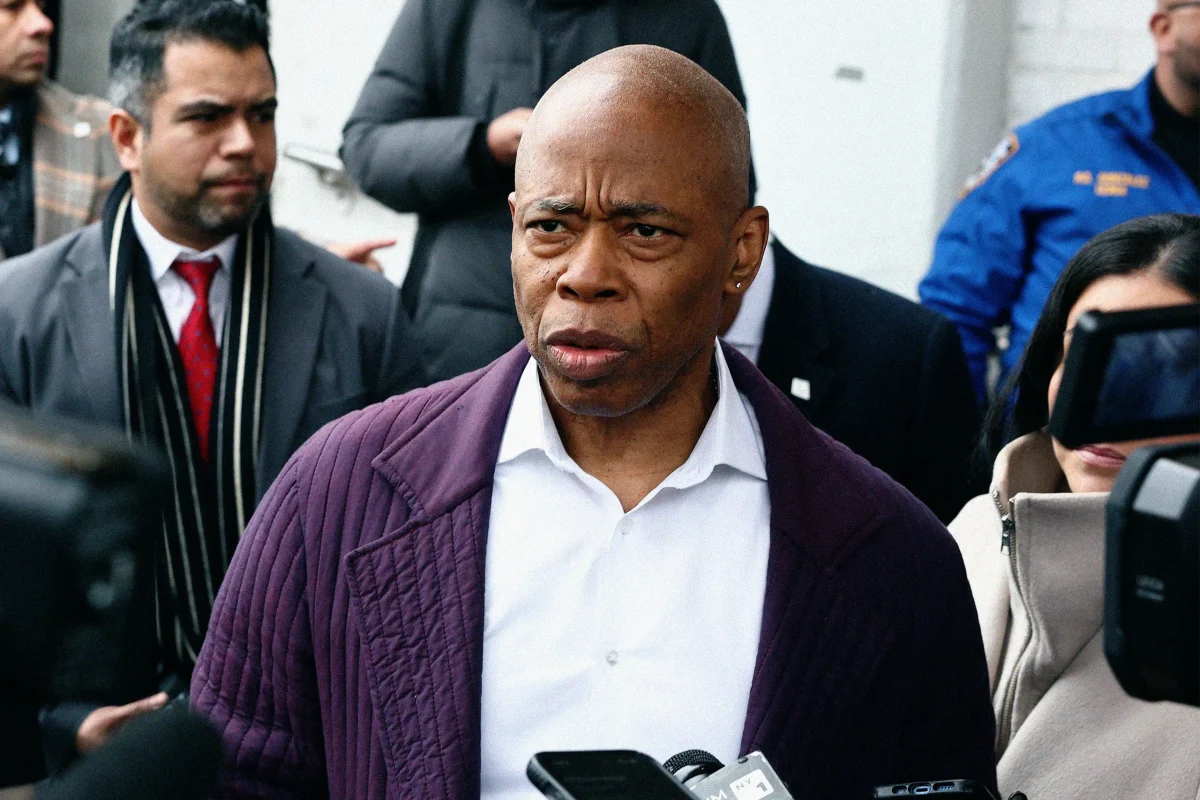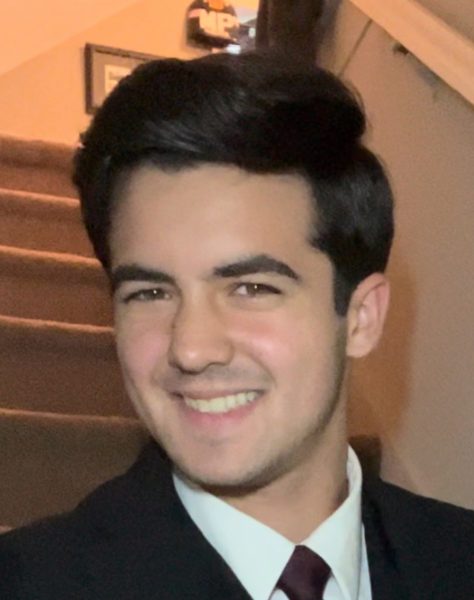One of the most violent years in all of recent American history would no doubt have to be the year 2020 (NPR). With COVID-19 ravaging, and cooping everybody inside, civil unrest was bound to occur, and that came with the desire to protest and riot activism. By the end of 2020 according to Axios and the Hill well over 1 to 2 billion dollars in damage was caused.
With the death of George Floyd in Minneapolis in May of 2020, this major controversy sparked a powder keg of violence in major cities all throughout the country. A slogan commonly used next to ‘ACAB’ was that of “Defund the Police,” and due to the extreme magnitude of these protests (many of which progressed into full-out riots) led many in the government to start pondering on whether or not they should defund the police.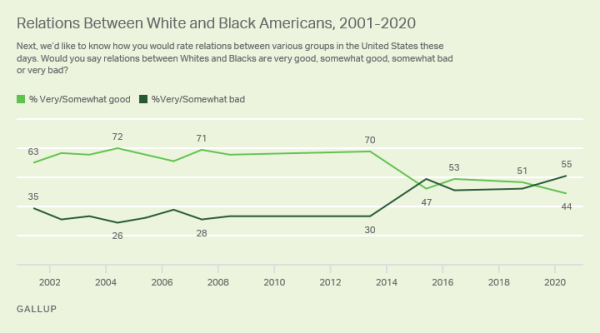
This anti-police rhetoric, as discussed in Article I, has been brewing for many years, having its roots in brutal archaic forms of policing that are no longer around today; it was only a matter of time before society started to attack those who protect us. Under the Obama administration and with the mainstream media taking on a far more political agenda, radical activist groups such as BLM grew and started to spew around the concept that police target minorities and must be defunded or abolished. This coincided with the trend where race relations further divided in the country which dropped drastically from over 70% thinking race relations were good to 44% in 2020.
As discussed in Article II, the overwhelming majority of harmful stereotypes about police are almost entirely false. Websites such as the American Friends Service Committee called for the defunding of police by claiming that, “Policing in the U.S. was established to maintain white supremacy” and that the government should “invest more in communities rather than policing.” You can’t have a sustainable community without policing, and there are several recent examples to support this! 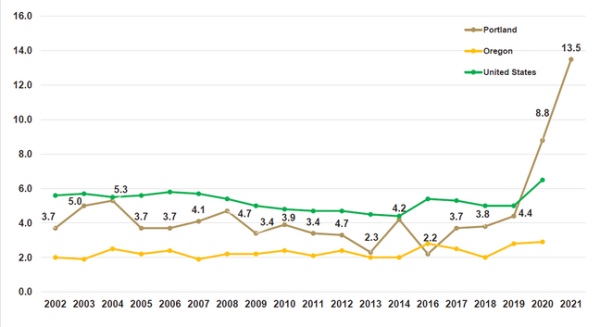
For example, Portland, Oregon, which in June of 2020 cut “millions from the police budget” due to outcries of radical rioters has since “partially restored the cut funds” according to pbs.org. The reason why can be seen in the crime rates of Portland from 2002 to 2021! According to Portland Homicide Problem Analysis 2019-2021 (photo courtesy of katu.com) crime rates in Portland tripled between 2019 and 2021, in the heat of the over hundred consecutive days of anti-police riots and protests (AP News). Even after the fund cuts were “partially restored,” Portland remains one of the most dangerous cities in the country “with a crime rate of 72 per one thousand residents” states neighborhoodscout.com (2024).
Furthermore, and most significantly, Seattle, Washington became one of the most crime-ridden and dangerous cities in the country, much like what happened in Portland. Although violence has somewhat tamed in Seattle, there is an ever-lasting impact from those riots that occurred nearly four years ago. Seattle continues to be one of the most crime-ridden cities in America with a crime rate of “66 per one thousand residents,” and in spite of the call to cut 50% of the police department’s budget never passed, crime rates and violence still soared in this city.
Most memorable about this city is the Capitol Hill Autonomous Zone, known as the Republic of CHAZ, later renamed CHOP (Capitol Hill Occupied Protest). Although Portland had more violence in terms of crime, Seattle’s local government permitted protestors from occupying the Capitol Hill zone of the city which has since snowballed into absolute chaos enveloping the area as a whole. As seen in YouTuber Tyler Oliveira’s video, “I Investigated the City that Banned Police…” we witness multiple disturbing images that one would normally never associate with America.
In said video, viewers would bear witness to massive protests continuing, rampant drug use, homelessness, and alarmingly dangerous amounts of crime. With drugged men in the street even shouting in the latter half of the video “Free fentanyl!” When Tyler attempts to contact an officer in his car, the officer simply drives away because even interacting with a delinquent or getting involved in many cases can result in severe repercussions or arduously long amounts of unnecessary paperwork to prevent “police brutality.”
The fact is crime is out of control, particularly in America’s cities. Chicagoans are currently seeing a 25% spike in overall robberies in 2023, New York City after decades of falling crime rates has been up in larceny, robbery, and assaults, in the first half of 2023 alone car nearly 500,000 cars were reported stolen according to the National Insurance Crime Bureau, protests have been occurring far more frequently than ever before since the BLM protests and riots of 2020; with one protest in Seattle on January 6, 2024 calling for the liberation of Palestine blocked the bustling Interstate 5 for over 5 hours! Even preventing an ambulance from breaking through.
From 2020 to 2023 a total of 322 deaths due to homicide occurred in Portland alone, compared to 2016 to 2019 which totaled 116 deaths. In 2022 alone 101 homicides occurred in Portland a mere 15 homicides off from the four years before 2020 combined! Gun violence spiked higher than it has been in all of American history in 2021. Furthermore, drug use is sky-high! Fentanyl overdoses alone have quadrupled between the years of 2016 and 2021, after increasing steadily, drug overdoses spiked in 2020 and 2021, totaling a combined 198,498 people (Axios). That is almost two hundred thousand people! That is equivalent to the entirety of a moderately sized city dying in only two years. With this devastating increase in crime, another problem continues to plague police departments throughout the country, and this one specifically can prove most consequential.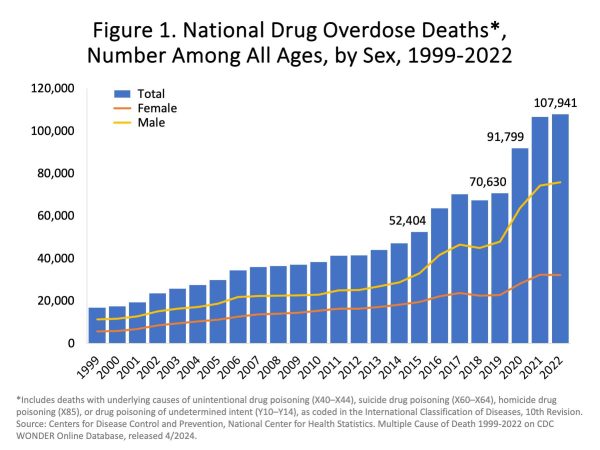
Nearly every police department all around the country is now witnessing a rapid decrease in applications due to the career as a whole becoming less appealing to applicants. An anonymous Patrolman in a Morris County police department stated that “[as a result of 2020] officers became more reluctant to make contact with citizens who have a negative bias view toward police because of the BLM movement. Hence, the job of a police officer has become less appealing resulting in a drastic reduction in applicants interested in the field of law enforcement.”
In a Washington Post article entitled “Police Agencies Are Desperate To Hire. But They Say Few Want The Job” by Robert Klemko, from May 27, 2023, it states that, “The San Francisco Police Department is down more than 600 officers, almost 30 percent of its allotment. Phoenix needs about 500 more officers to be fully staffed. The D.C. police force is smaller than it has been in 50 years, despite troubling gun violence and carjackings, as officers leave faster than they can be replaced.” Many current and former officials state that this is a “staffing emergency that threatens public safety.”
With rising crime rates, increasing hostility from civilians, and the job becoming less profitable and appealing as a whole: the policing system of our nation is starting to face what appears to be the beginning of a severe problem that can wreak devastating effects on our country as a whole if it is not properly addressed now. Many activists and protestors see this as an opportunity to reform the police system; however, in cities like Seattle where they had attempted such thing in places like CHAZ, it resulted in devastating failure, these “activist-revised police forces” are complete failures as organizations and barely make a fraction of a dent in the overall massive crime rates.
Police Departments all over such as the ones in Washington D.C. and San Francisco are lowering their standards and requirements for policing because of how desperate they are for any applicants. Even though that serves as a short-term solution for the number of officers in police departments, it does not take into account how effective the police department will perform as a whole in the future; furthermore, the amount of lower-quality applicants applying for police officers is likely less slim than the actual number of qualified applicants, which are already at an all-time low due to how unappealing the profession has become as a whole.
In an interview with Sheriff Tom Dart of Cook County, Illinois, whose police department is short 300 people and has lowered the bar for many applicants, he stated “We’re having to really, really work hard to fill what we have, And we’re still not filling at the rate that we would want.”
The passage of the Washington Post article continued stating, “Cook County’s 5,000-inmate jail can’t afford to cut corners for safety reasons, so the patrol division runs understaffed,” Dart said in an interview. Complicating matters, smaller police departments in the county’s villages and towns are [short staffed] also, and have asked Dart’s agency to step in.”
A survey was done in Illinois alone, shockingly resulting in the fact that 60 percent of 239 responding agencies across Illinois were not fully staffed, and 19 percent said they were short more than 10 percent of what was budgeted. Almost half of all new hires in 2020 and 2021 were transfers from other agencies—a “dramatic and unprecedented spike.” Anonymous Illinois chiefs admitted that “they were lowering standards for educational and criminal records so they could achieve bare minimum staffing.”
This is most certainly not exclusive to Illinois. Even in Morris County, in every interview I conducted, the officers stated that they were facing hardship and were receiving far fewer applicants than ever before. Morris County Officer Mike Scissione stated that 2020 had “affected our department negatively, we used to be a proactive department but 2020 made us reactive and we haven’t gotten back to what it was.” Scissione even stated that when he was hired in 2013, “500 people took the test to get into his police department alone, and last year there were under 100 applicants.”
Morris County Police Sergeant Christopher Chicoris stated that, during 2020 “While the world sat at home, nervous from the outside world, the George Floyd incident was at the forefront (for policing). That sole incident changed policing, changing our Use of Force policies and guidelines throughout the state for law enforcement. That incident also affected law enforcement by ensuring every officer received training for de-escalation and active bystander” which he states was basically, “where you say you are liable whether you have 1 year or 20 years on the job, to step in and ensure officers are not using excessive and/or unnecessary force,” which is vaguely defined.
Chicoris’s department is particularly small and not short-staffed, albeit, the workload has “increased tremendously with the administrative end. Documenting and filing monthly/quarterly/and annual reports. We have to document in more detail the race and gender of our [department’s applicants], why they did or did not pass on to the next round, why they were selected or not, selected to be interviewed et cetera…”
Furthermore, an anonymous patrol officer stated that “Police officers are now afraid to do their jobs and have to rethink everything they do. Even if they do everything by the book and legally it comes down to what others think and their opinions.” when questioned about being short staffed he stated that “although [we are] not short staffed; my department has geared itself towards having many officers work inside than actually out on the road. The focus seems to be more on community relations and less on fighting crime. It’s not necessarily a bad thing but, with crime at an all-time high, we need to have a more proactive approach.”
An anonymous Sheriff’s Department officer stated that the “Department is almost at their staffing number. However, that number does not seem to support the many units of the department. We are impacted by being staffed by a variety of other reasons aside from the pandemic, and with a variety of options and essential units that also need to be filled such as and not limited to: SERT, SOG, Training, Quartermaster, ESU, K9, Hope One / Hope Hub, Marine Police, Crime Scene, Evidence, Patrol, Community Outreach and Planning, Ballistics, to name a few, it requires officers to wear many hats.” This can all also be “attributed to low compensation in salary, minimal benefits or perks (such as healthcare upon retirement), limited vacation and personal time to name a few.”
Lastly, a former anonymous Captain of a local Police Department stated “I have seen the very worst of humanity and the very best. Most people are good decent folks, and the job of law enforcement is to protect them from those who harm. The predominant focus of policing was to apprehend those who broke the law and bring them before the courts to be held accountable for their actions. Today the focus is to appease the policies of the agenda of radical left politicians and activists where lawbreakers are no longer held accountable for their actions.”
He stated in the interview that everything went so awry with all of the events leading up to 2020, where people like President Barack Obama and other activists and politicians helped fuel the flames of anti-police rhetoric, but the largest contributor to this anti-police rhetoric is the mainstream media and its journalists, and every officer interviewed in some way shape or form blamed the media. As the Former Captain stated, “The media, by and large, vilifies police officers of our country and sparks major controversies for self-benefitting viewership and to contribute to the agenda of radical left activists and politicians.”
Additionally, Officer Scissione concluded the interview, when asked “What do you think is still causing police departments to face such difficulties?” He stated, “Mainstream Media, they air an incredibly large amount of anti-police rhetoric, there’s never a story putting the police in a positive light anymore.”
If we as a country want to solve this problem we must reemphasize how important policing is to our communities, and it starts with convincing the community. As outlined in these interviews, this is not a problem limited to the select largest cities of our country: this comes down to the very most local areas of our nation, as well. We must overcome and cease these staffing and financial shortages, and strict political, societal, and legal limitations, and we must especially stop the widespread stigma that all police officers are bad people who are racist which is fueled by activist and media perceptions. If we as a country manage to solve these nationwide issues, only then will we be able to stop police departments from being pushed around by delinquents and activists of wrongdoing and put our foot down to set our country back into order.
Photo courtesy of KATU, Gallup, and the National Institute of Drug Abuse





